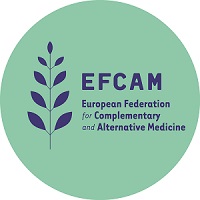EU Policy on CAM
The EU has few policies that specifically refer to CAM, even though a significant proportion of the population use CAM as part of their healthcare provision. There are some measures relating to some CAM medicines and products but none concerning the right to work and practice.
European Parliament Resolution – the Lannoye/Collins Report
In 1997 the European Parliament adopted a resolution on “non-conventional medicine”. No action has been taken in relation to this since then.
The resolution was enacted as follows:
1. Calls on the Commission, if the results of the study allow, to launch a process of recognising non-conventional medicine and, to this end, to take the necessary steps to encourage the establishment of appropriate committees.
2. Calls on the Commission to carry out a thorough study into the safety, effectiveness, area of application and the complementary or alternative nature of all non-conventional medicines and to draw up a comparative study of the various national legal models to which non-conventional medical practitioners are subject.
3. Calls on the Commission, in formulating European legislation on non-conventional forms of medicine, to make a clear distinction between non-conventional medicines which are ‘complementary’ in nature and those which are ‘alternative’ medicines in the sense that they replace conventional medicine.
4. Calls on the Council after completion of the preliminary work referred to in paragraph 2 above to encourage the development of research programmes in the field of non- conventional medicines covering the individual and holistic approach, the preventive role and the specific characteristics of the non-conventional medical disciplines; undertakes to do likewise.
5. Urges the Commission to submit a report as soon as possible to the Council and European Parliament on the results of the studies and research already carried out under budget item B-7142 which, since 1994, has been earmarked for research into the effectiveness of homeopathy and other non-conventional medicines.
6. Calls on the Commission, in examining the effectiveness of forms of therapy used in non- conventional medicine, to ensure that none of the treatments used in the Member States makes use of medicines made from the organs of threatened animal species, which would constitute involvement in illegal trafficking.
7. Calls on the Commission to submit a proposal for a Directive on food supplements which are frequently situated on the border between dietary and medicinal products. Such legislation should help guarantee good manufacturing practice with a view to consumer protection without restricting freedom of access or choice and ensure the freedom of all practitioners to recommend such products; calls on the Commission to remove trade
barriers between Member States by giving manufacturers of health products free access to all the markets in the EU.
8. Instructs its President to forward this resolution to the Council, the Commission and the governments of the Member States.
